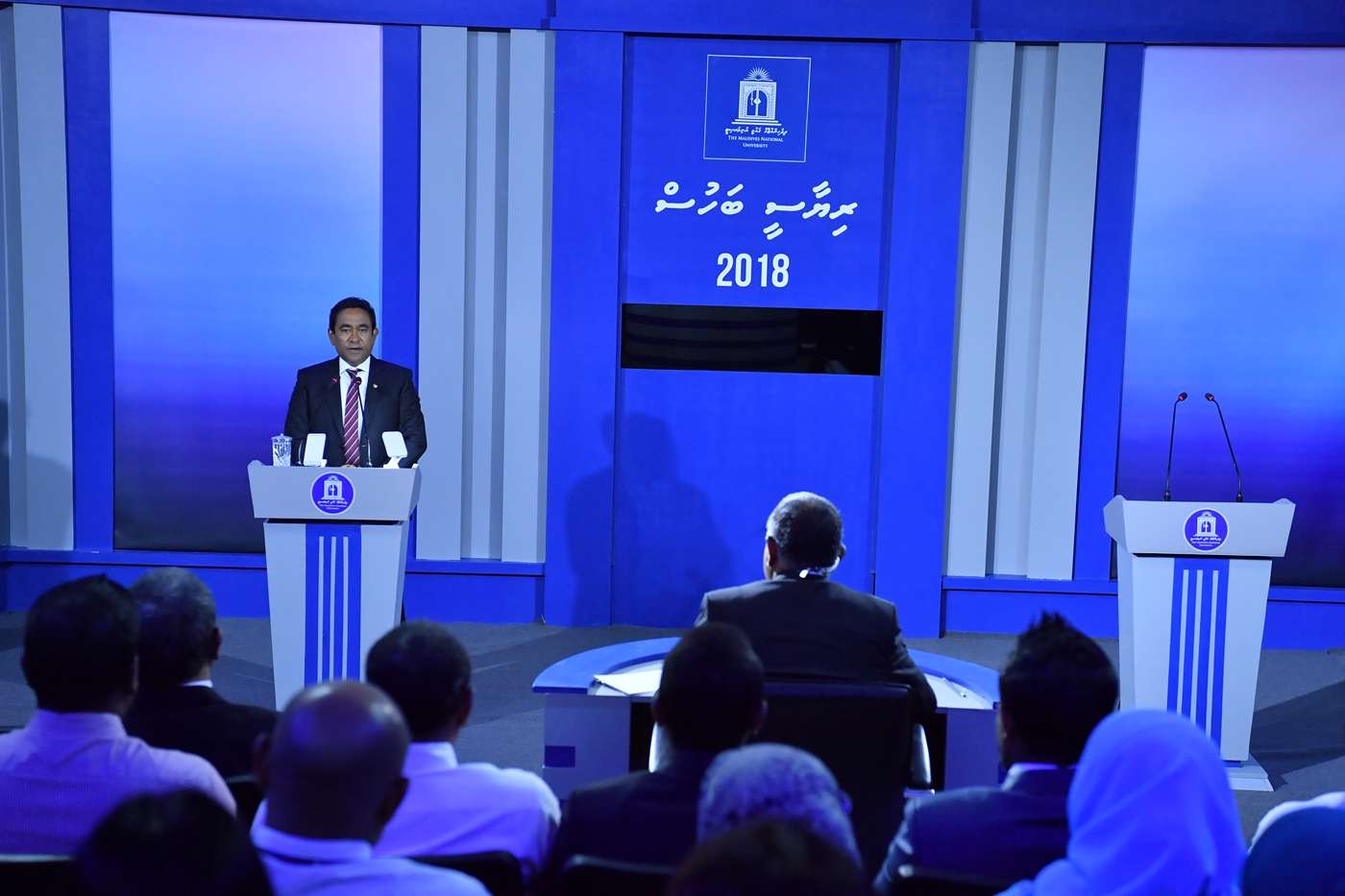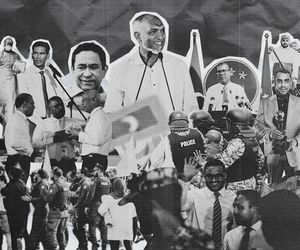Five easy fact-checks of the Maldives president
Maldives National University did not fact-check the president during a recent ‘debate.’ So we did.

18 Sep 2018, 09:00
On Sunday night President Abdulla Yameen took part in a question and answer session organised by Maldives National University. It was meant to be a debate ahead of an election scheduled for September 23, but the opposition said there was no guarantee it would be fair and declined to take part.
MNU was criticised for saying the debate would continue as a solo session and because the host did not challenge or follow up Yameen’s assertions including his (false) claim that “violent crime such as brutal stabbings” had fallen by 35 percent.
This is a Maldives Independent fact-check of what Yameen said.
– Gangs –
Become a member
Get full access to our archive and personalise your experience.
Already a member?
Discussion
No comments yet. Be the first to share your thoughts!
No comments yet. Be the first to join the conversation!
Join the Conversation
Sign in to share your thoughts under an alias and take part in the discussion. Independent journalism thrives on open, respectful debate — your voice matters.




